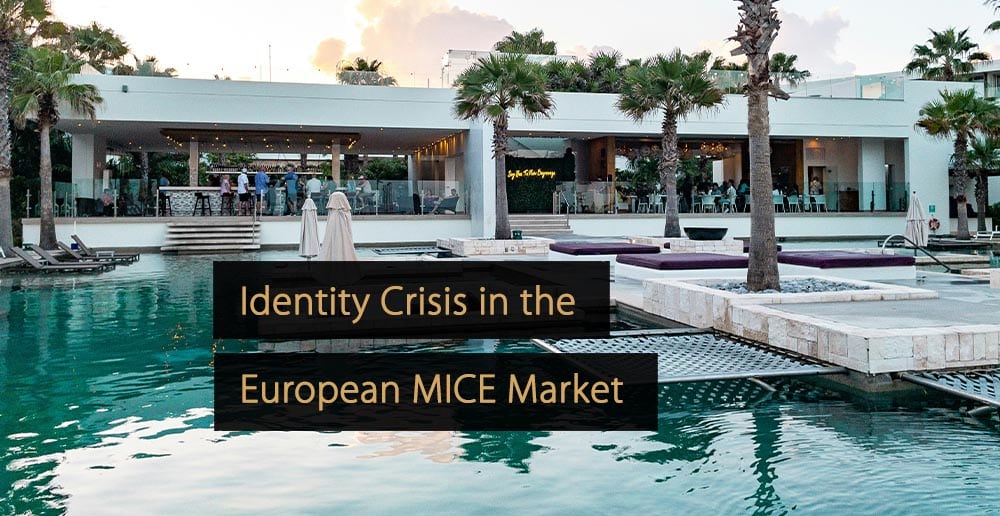O setor de hospitalidade teve uma recuperação notável em 2024, contribuindo com um recorde de $11,1 trilhões para o PIB global. Mas além do sucesso financeiro, o que realmente está impulsionando essa transformação? As expectativas dos hóspedes estão evoluindo, e os insights baseados em IA, juntamente com o gerenciamento de reputação online, estão remodelando o setor. Entender essas tendências é crucial para os hoteleiros que pretendem permanecer à frente em 2025 e além.
8 tendências de experiência do hóspede que moldarão 2025 e além
Aqui estão oito tendências de experiência do hóspede que moldarão 2025 e além.
1. A satisfação dos hóspedes está aumentando
A satisfação dos hóspedes vem crescendo desde o início do terceiro trimestre de 2022. Se isso é principalmente o efeito de cauda longa da recuperação do mercado da pandemia de Covid é discutível, mas vários indicadores sugerem isso. A evolução do GRI mostra que os padrões pré-COVID estão se reforçando, como a queda da temporada de pico em agosto e a recuperação subsequente, um padrão típico da era pré-COVID.
Ao mesmo tempo, as expectativas dos hóspedes estão mudando. Isso pode ser visto na evolução da tendência do índice Value for money, por exemplo, que aponta que a percepção dessa proporção mudou bastante em 2024; de fato, muitas regiões estão passando por uma reversão de tendência (Europa, América Latina e África). Nenhuma outra pontuação de departamento importante registrou uma parada tão abrupta em sua tendência positiva.
A experiência do hóspede muda para uma mais personalizada, graças à maior capacidade de coletar e analisar dados, mas com a limitação da elasticidade do mercado. Um provável contribuinte para o último é o mercado de aluguel de curto prazo, que pressiona os hotéis com sua disponibilidade e dinâmica de preços cada vez maiores. De fato, um bom serviço inclui parâmetros-chave como limpeza do quarto e das instalações, equipe qualificada e um quarto que atenda às expectativas que as tarifas sugerem.
2. Hotéis de nível médio estão ganhando reputação
Hotéis cinco estrelas provavelmente enfrentarão um ambiente mais desafiador, já que o recente pico de inflação levou a um aumento adicional nas taxas, o que, por sua vez, elevou ainda mais as expectativas. Outro fator é a rotatividade de funcionários. Embora menos relevante do que antes, isso ainda afeta o mercado 5 estrelas. Os dados nos dizem que, embora o mercado de luxo tenha conseguido conter a perda de satisfação dos hóspedes causada pela pandemia da COVID-19, os GRIs das propriedades 4 e 3 estrelas continuaram caindo até agosto de 2022.
Portanto, uma recuperação mais vigorosa está ocorrendo agora para os hotéis de médio porte, agravada pelo aumento das tarifas que lhes permitiu atrair alguns dos hóspedes 5 estrelas e aumentar seu GRI mais rápido do que o mercado de luxo.
3. O volume de avaliações está diminuindo
O volume de avaliações é influenciado por vários fatores, com três variáveis principais se destacando. Primeiro, a análise de sentimentos indica que a satisfação geral dos hóspedes está aumentando, tornando as avaliações negativas menos prováveis e contribuindo para o efeito em forma de J comum na distribuição de avaliações. Segundo, a repressão às avaliações negativas afetou especialmente regiões como a América Latina, que viu uma queda de 10% no volume de avaliações em 2023. Por fim, houve uma mudança na participação de mercado para Booking.com, que viu sua participação diminuir de quase 50% em 2022 para 37% em 2024, apesar de um aumento nas menções positivas.
A competição aumentada de Expedia e Hotels.com e hóspedes mais satisfeitos contribuíram para essa tendência. Em 2024, Booking.com experimentou um aumento de 1,4 ponto em menções positivas, marcando uma melhoria significativa.
4. Avaliações geradas por IA
O enorme potencial da IA é desafiador de manter sob controle. Se usada para gerar avaliações confiáveis, ela alteraria o ciclo de feedback, causando danos não apenas aos viajantes, mas também ao próprio hotel. De fato, a longo prazo, alterar a percepção dos hóspedes com avaliações falsas só aumentaria expectativas que não seriam atendidas e adicionaria ruído aos dados, tornando mais difícil para a indústria hoteleira separar o joio do trigo.
Como precaução, ferramentas de IA que pudessem policiar o mercado de avaliações seriam benéficas para tranquilizar os hóspedes sobre a autenticidade das avaliações que eles leem. Ainda assim, a indústria hoteleira verá a troca como algo que não vale a pena. O dano à reputação supera em muito os benefícios de alterar o fluxo de avaliações.
5. As tendências de reputação estão mudando por região
O mercado asiático foi o primeiro a se recuperar da pandemia, mostrando satisfação positiva dos hóspedes cerca de oito meses antes do resto do mundo. Tanto os hotéis de luxo quanto os de médio porte tiveram um bom desempenho até outubro, quando surgiram sinais de uma reversão de tendência. O GRI da Europa é afetado pelo desempenho da alta temporada, levando a uma desaceleração no segmento de luxo semelhante à do mercado 5 estrelas da América do Norte. O valor e o desempenho dos quartos são fatores-chave nessa tendência.
Em contraste, o Oriente Médio e a África registraram crescimento mais forte. Os mercados asiático e do Oriente Médio mantiveram desempenho consistente nos últimos dois anos, enquanto os mercados europeu e latino-americano tiveram declínios, com hotéis de médio porte na Europa e hotéis de alto padrão na América Latina ficando atrás de outras regiões no GRI para 2024.
6. Revolucionar a reputação da OTA
Após a pandemia, a reação rápida e dinâmica do Booking.com às políticas de cancelamento e outras políticas de hóspedes impulsionou sua participação no mercado, deixando para trás não apenas as OTAs menores, mas também seus principais concorrentes. Na era pré-pandêmica, o Google estava pronto para ultrapassar o Booking.com e se tornar o líder na geração de avaliações em todo o mundo. O período pós-Covid viu o Google recuperar rapidamente a participação no mercado graças à facilidade com que seus usuários podiam postar uma avaliação. Como dissemos antes, a repressão às avaliações falsas alterou essa trajetória, paralisando a tendência positiva.
7. Velocidade de resposta de revisão com tecnologia de IA
O tempo de resposta aumentou drasticamente nos últimos 3 anos, com as avaliações agora sendo respondidas em cerca de quatro dias, abaixo dos mais de seis em 2022. Ao mesmo tempo, a porcentagem de resposta às avaliações continuou aumentando. Os hotéis precisam se adaptar a essa tendência em rápida evolução, garantindo que possam acompanhar o ritmo de seus concorrentes. Respostas automatizadas podem causar danos apenas se a saída da IA não for supervisionada e revisada antes da publicação, se nenhum detalhe for adicionado sempre que possível para tornar cada avaliação única.
8. O impacto da reputação na receita
As estratégias tradicionais de receita focam em preços, concorrência e condições de mercado, mas a percepção e satisfação do hóspede influenciam a demanda de forma igualmente significativa. A reputação também reflete o desempenho operacional, um fator-chave para o sucesso de longo prazo de qualquer propriedade. Portanto, a análise de reputação deve ser integrada ao revenue management, especialmente em um mercado competitivo onde a reputação pode desempenhar um papel significativo na decisão final de reserva dos clientes em potencial. Prever tendências de reputação se tornaria um componente enorme desse processo e da capacidade de executar uma estratégia de reputação de forma eficaz.
O que definirá a reputação do hotel em 2025?
O mercado de luxo continuará focando na personalização usando os dados que eles podem capturar para melhorar a experiência do hóspede. Assim, a reputação de um hotel será definida por sua capacidade de aplicar as últimas tecnologias para capacitar seus funcionários a proporcionar uma experiência inesquecível aos seus hóspedes.
As propriedades de nível médio aumentaram suas tarifas em mais de 25% desde a pré-pandemia na Europa. Equilibrar as tarifas e as expectativas dos hóspedes desempenhará um papel crucial. Otimizar custos e gerenciar as programações dos funcionários pode levar as propriedades de 4 estrelas a adotar a digitalização e tornar o engajamento digital parte de seus principais fluxos de receita.
Relatório grátis: Relatório de referência da experiência do hóspede 2025
O Guest Experience Benchmark Report 2025 fornece uma análise abrangente do sentimento global dos hóspedes e do desempenho das avaliações de hotéis, estabelecendo 2024 como o novo benchmark para o setor.
Clique aqui para baixar o “Relatório de referência da experiência do hóspede 2025”.
Mais dicas para expandir seus negócios
Revfine.com é a plataforma de conhecimento líder para a indústria de hospitalidade e viagens. Profissionais usam nossos insights, estratégias e dicas práticas para se inspirar, otimizar receita, inovar processos e melhorar a experiência do cliente.Explore conselhos de especialistas sobre gestão, marketing, revenue management, operações, software e tecnologia em nosso dedicado Hotel, Hospitalidade, e Viagem de Turismo categorias.








Leave A Comment